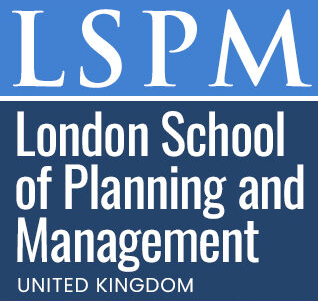Certificate Programme in Plant Biotechnology Quality Control
-- viewing now**Certificate Programme in Plant Biotechnology Quality Control** This comprehensive programme equips individuals with the knowledge and skills to ensure the quality and safety of plant-based products throughout the entire production process. Target Audience: Food scientists and researchers Quality control personnel Biotechnology technicians Students pursuing a career in plant biotechnology Upon completion of this programme, participants will be able to: Identify and apply quality control principles and standards Implement quality control procedures for various aspects of plant production Analyze and interpret quality control data Develop and implement quality control plans This programme is ideal for individuals seeking a career in the exciting field of plant biotechnology, where quality control is paramount for ensuring the safety and efficacy of food products.
4,115+
Students enrolled
GBP £ 149
GBP £ 215
Save 44% with our special offer
About this course
100% online
Learn from anywhere
Shareable certificate
Add to your LinkedIn profile
2 months to complete
at 2-3 hours a week
Start anytime
No waiting period
Course details
• **Definition of Quality Control (QC)**: Ensuring that products or services meet or exceed customer expectations.
• **Quality Control (QC) Principles**: Customer focus, defect prevention, continuous improvement, and employee involvement.
• **Quality Management System (QMS)**: A framework for planning, implementing, and documenting quality control processes.
• **Quality Control Tools**: Statistical process control (SPC), control charts, and acceptance sampling.
**Module 2: Principles of Good Laboratory Practice (GLP)**
• **Good Laboratory Practice (GLP)**: A set of guidelines for ensuring the quality and integrity of data generated in a laboratory setting.
• **Good Laboratory Practice (GLP) Regulations**: ISO 17025, Good Laboratory Practice (GLP), and European Union (EU) directives.
• **Good Documentation Practices**: Accurate and complete records are essential for demonstrating compliance.
• **Good Laboratory Practice (GLP) Training**: Ensuring personnel are qualified and trained in GLP procedures.
**Module 3: Statistical Process Control (SPC)**
• **What is SPC?**: A statistical method for monitoring and controlling process variability.
• **Types of SPC Charts**: X-bar and R charts, control charts, and histograms.
• **SPC Applications**: Identifying trends, detecting shifts, and ensuring process stability.
• **SPC Advantages**: Reduces variation, improves product quality, and minimizes waste.
**Module 4: Control Charts**
• **What are control charts?**: Charts used to monitor and control process variability.
• **Types of Control Charts**: X-bar and R charts, control charts, and histograms.
• **Control Chart Applications**: Identifying trends, detecting shifts, and ensuring process stability.
• **Control Charts Advantages**: Helps identify and address process deviations.
**Module 5: Acceptance Sampling**
• **What is acceptance sampling?**: A statistical method for determining the number of units to be inspected to ensure product quality meets specifications.
• **Acceptance Sampling Formula**: p(x) = (n - 1)p^2 / n, where n is the sample size and p is the proportion of defects in the population.
• **Acceptance Sampling Advantages**: Reduces sampling costs, ensures product quality, and minimizes waste.
• **Acceptance Sampling Disadvantages**: May not be suitable for all products or processes.
**Module 6: Implementation and Documentation of Quality Control Programs**
• **Implementing a Quality Control Program**: Establishing roles and responsibilities, defining quality control procedures, and implementing a quality control plan.
• **Documentation**: Maintaining accurate and complete records of quality control activities, including inspection results, deviations, and corrective actions.
• **Quality Control Audits**: Periodic assessments to ensure compliance with quality control standards and regulations.
• **Continuous Improvement**: Regularly reviewing and improving quality control processes to ensure ongoing product quality.
Career path
Entry requirements
- Basic understanding of the subject matter
- Proficiency in English language
- Computer and internet access
- Basic computer skills
- Dedication to complete the course
No prior formal qualifications required. Course designed for accessibility.
Course status
This course provides practical knowledge and skills for professional development. It is:
- Not accredited by a recognized body
- Not regulated by an authorized institution
- Complementary to formal qualifications
You'll receive a certificate of completion upon successfully finishing the course.
Why people choose us for their career
Loading reviews...
Frequently Asked Questions
Course fee
- 3-4 hours per week
- Early certificate delivery
- Open enrollment - start anytime
- 2-3 hours per week
- Regular certificate delivery
- Open enrollment - start anytime
- Full course access
- Digital certificate
- Course materials
Get course information
Earn a career certificate

